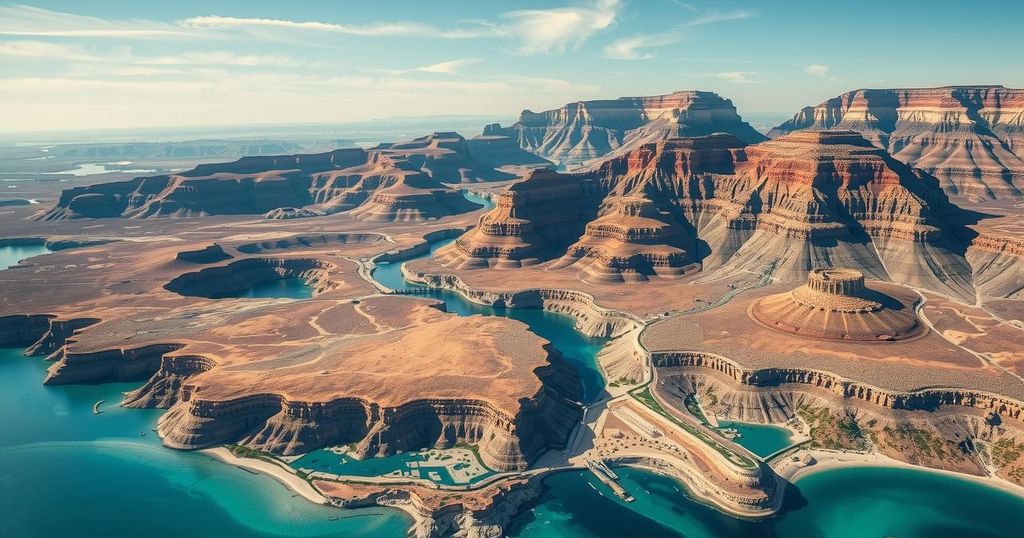Chile, a stunning country of nearly 20 million people, stretches 2,500 miles down the Pacific coast, showcasing diverse climates and remarkable wildlife. Despite its beauty, travelers should be mindful of social conflicts affecting certain areas and the country’s significant earthquake risk. Chile offers a unique blend of natural wonders, cultural heritage, and adventure opportunities.
Chile, a stunning country stretching 2,500 miles down the Pacific coast of South America, is one of the longest north-south nations in the world. This remarkable nation shares borders with Argentina, Peru, and Bolivia and has a diverse climate ranging from the arid Atacama Desert in the north to temperate and damp regions in the south. Chile is home to nearly 20 million people and offers a variety of attractions, including breathtaking beaches, soaring mountains, and abundant wildlife.
Chile boasts the second-largest volcanic chain globally, situated within the Pacific Ring of Fire, and encompasses a wide range of climates and ecological zones. With climatic conditions influenced by the southern latitude, it supports at least eighteen major climatic subtypes, including Mediterranean, tropical, oceanic, alpine, and tundra environments. The Patagonia region attracts numerous visitors with its stunning glaciers and trekking opportunities, while the diverse wildlife offers the chance to see various unique species, including the Chilean condor and hairy armadillos.
Despite being recognized by the Global Peace Index as one of the safest countries in the Americas, Chile presents specific areas where caution is advised due to an ongoing conflict between Indigenous Mapuche activists and the Chilean state. This conflict primarily revolves around land rights, targeting forestry corporations and landowners, and may lead to road closures and hazardous situations. It is advisable to avoid regions along the coastal range between Lebu and Temuco.
Additionally, Chile experiences high seismic activity, being one of the most active regions in the world for earthquakes. The 1960 Valdivia Earthquake, which recorded a magnitude of 9.5, remains the most powerful earthquake documented in history. Travelers should remain informed about natural hazards when visiting this incredible country, known for its natural beauty and rich cultural heritage.
Chile is a unique country characterized by its extraordinary length of 2,500 miles, which is comparable to the entirety of Europe from Sweden to Spain. It is nestled between the Andes mountains and the Pacific Ocean, which contributes to its diverse climate and geography. The nation’s stark contrasts in ecological zones—from deserts to glaciers—provide a fresh perspective on the Earth’s climatic varieties. This country, rich in natural landscapes and cultural heritage, is a prime destination for tourists seeking both adventure and tranquility.
In conclusion, Chile stands out as an extraordinary country that offers an impressive array of geographical and climatic diversity. With its long continental stretch, rich wildlife, and beautiful landscapes—from the driest desert to lush southern glaciers—it presents travelers with countless opportunities for exploration. While the country is largely safe, visitors should exercise caution in certain areas due to social conflicts, as well as remain aware of its high seismic activity. Chile’s remarkable attractions and experiences make it a remarkable destination.
Original Source: www.express.co.uk






